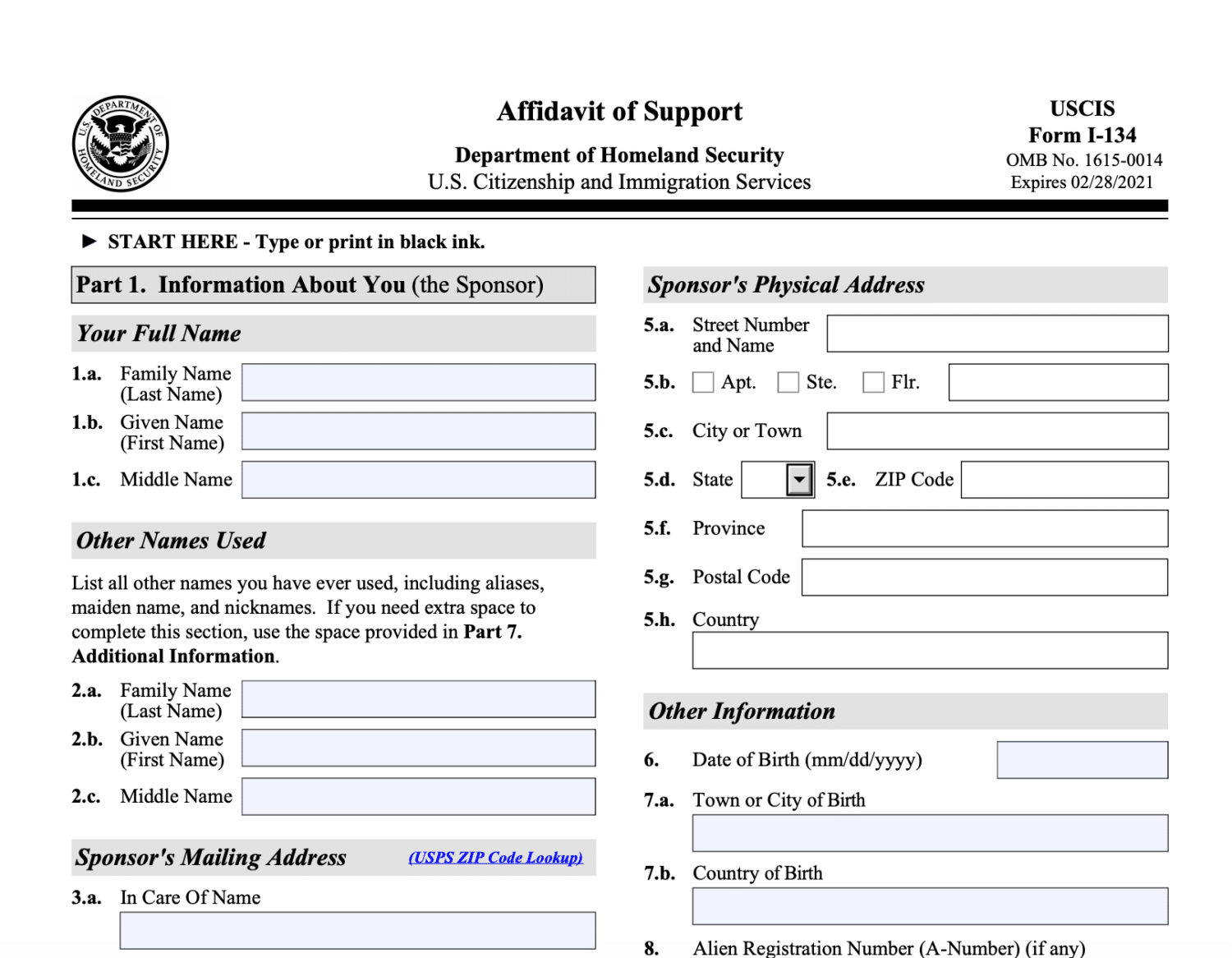A medical examination is required for all immigrant visas and some non-immigrant visas as well as for refugees and adjustment of status applicants. The purpose of the medical exam is to determine if you have any health conditions that need attention prior to immigrating.
Below you will find a list of frequently asked questions (FAQs) regarding the medical examination that will be required.
Who is required to have a medical examination?
- All immigrant visa applicants, regardless of age need to complete a medical examination
When do I need to take the medical examination?
- Applicants are advised to have their medical examinations done at least one week before their interview appointment at the U.S. Embassy
Where do I take the medical examination?
- Medical examinations must be performed by an approved panel physician and can ONLY be done at the doctor/clinic/hospital authorized by particular the U.S. Embassy/Consulate the applicant is going for consular processing.
Can the applicant have his/her physician perform the medical examination?
- The medical examination must be performed by an approved panel physician.
What should I bring to my medical examination?
- Appointment letter sent by the National Visa Center or an e-mail confirmation from the Visa Information and Appointment Service.
- Appropriate medical examination fee.
- Passport (valid for at least 6 months)
- Four color pictures (2 inches x 2 inches) with a white background(two are for the visa and two are for the medical report).
What should the applicant expect at the medical examination?
- The applicant must show his/her passport (or other photo identification) and appointment letter to the doctor during the medical examination.
- The medical examination will include a medical history review, physical examination, chest X-ray and blood tests for syphilis.
- The physical examination will at least include examination of the eyes, ears, nose and throat, extremities, heart, lungs, abdomen, lymph nodes, skin and external genitalia.
- In some countries, the panel physician will send the results to the U.S. Embassy/Consulate directly. In other countries, the panel physician will give the applicant his/her medical exam results in a sealed envelope and an x-ray which the applicant must bring to the interview.
Note: The medical examination is not a complete physical examination. Its purpose is to screen for certain medical conditions relevant to U.S. immigration law. The panel physician is not required to examine you for any conditions except those the U.S. Public Health Service specifies for U.S. immigration purposes nor is the physician required to provide you with diagnosis or treatment even though other matters related to your health might be discovered. This examination is not a substitute for a full physical examination consultation diagnosis or treatment by your primary health care provider.
What conditions would make you inadmissible on medical grounds?
- Individuals who are found to have a communicable disease of public health significance, including, chancroid; gonorrhea; granuloma inguinale; Hansen’s disease (infectious leprosy); lymphogranuloma venereum; infectious state syphilis; and infectious tuberculosis (Class A TB)
- Immigrant visa and adjustment of applicants who have not received all of the required vaccinations
- Individuals who have current physical or mental disorders, with harmful behavior associated with that disorder, or past physical or mental disorders, with associated harmful behavior that is likely to recur or lead to other harmful behavior
- Individuals who are found to be drug abusers or drug addicts
Will immunizations be required?
- You will be required to provide proof of immunizations. If you have any records of immunizations (vaccinations), bring them to your appointment. The doctor will tell you if additional immunizations are needed and where you can get them (usually at your local public health department).
What if I have a chronic medical problem?
- If you have a chronic medical problem which you feel may impact the exam, bring copies of your medical records to show that you are being treated and that your condition is controlled.
What does doctor look for in the medical examination?
- The doctor will examine you for certain physical and mental health conditions.
- Adult applicants will be tested for tuberculosis (TB). Applicants two years old or older will be required to have a chest x-ray. The doctor may require an applicant younger than two to have a skin test if the child has a history of contact with a known TB case, or if there is another reason to suspect TB disease.
- You will have a blood test to determine if you have syphilis (if you are 15 years of age or older) as well as to see if you have the human immuno-deficiency virus (HIV) infection.
- You will have a Gonorrhea test(if you are 15 years of age or older) .
- Applicants 2-14 years of age are required to take Interferon Gamma Release Assay(IGRA) test.
Will I have to remove my clothes for the medical examination?
- Yes. You will have to remove your clothes for the medical procedures.
Will additional tests be required?
- If the doctor determines that you need more tests because of a condition found during your medical exam, you may be sent to an Inter-specialty consultations within the clinic or can be given referrals to sub-specialty clinics outside the accredited medical facility.
What happens after the medical examination?
- At the completion of your exam, the doctor or clinic will provide you with documentation that you will need to complete your adjustment of status.
Who has the final decision on whether you will be approved?
- If there are any irregularities regarding your medical exam, remember that the doctor is providing a medical opinion and can only make recommendations. The consulate or USCIS has the final decision on whether you will be approved.
Are children required to have chest x-rays or blood tests?
- Chest X-ray and blood tests are not usually required for children under the age of fifteen (15).
What if the applicant is mentally retarded or has a learning disability?
- Applicants with mental retardation or learning disabilities must present a report of their condition and any special educational or supervision requirements.
What is the legal basis for requesting medical information for visa applicants?
- Medical eligibility is a requirement of INA Sections 212(a) and 221(d). Failure to provide required information may cause delay or denial of immigrant visas. If an immigrant visa is not issued, all medical eligibility forms will be treated as confidential under INA Section 222(f).
What if the applicant had a positive tuberculosis skin test?
- Applicants with a previous positive skin test for tuberculosis should provide a certificate from the attending doctor (giving the circumstances of the positive test result, and indicating any treatment prescribed, and its duration) to the panel physician. If the applicant has ever been diagnosed with tuberculosis, the applicant must present a written certification, signed by the attending doctor, proving that the applicant was adequately treated. The certificate must include dates and types of medications taken. Applicants who ever had an abnormal chest X-ray should borrow the last X-ray films taken and bring them to the panel physician. The actual films, not the typed reports, may be required to compare with the X-rays that will be taken at the medical examination.
What if the applicant had syphilis?
- Applicants who have had syphilis must present the panel doctor with a written certificate, signed by a doctor or public health official proving that the applicant was adequately treated. Applicants who ever had a positive VDRL or other blood test for syphilis and were not treated must give a written explanation signed by the applicant’s doctor to the panel physician.
If the applicant is pregnant must she have a chest x-ray?
- The U.S. Centers for Disease Control and Prevention (CDC) requires that women who are pregnant and required to have a medical examination in connection with the issuance of a visa and are examined in a country currently using the 2007 TB Technical Instructions must have a chest x-ray examination conducted. Pregnant women will have to provide the panel physician with consent to conduct the chest x-ray. For the health of the applicant and her unborn child, CDC instructs panel physicians and laboratories to provide abdominal and pelvic protection with double layer, wrap-around lead shields when they receive the chest radiographs. This requirement does not apply to countries using the 1991 TB Technical Instructions which allow for an exemption of the chest x-ray requirement for pregnant women. Pregnant applicants who do not wish to have the X-ray will be granted a temporary exemption when they provide written certification of pregnancy signed by their personal physician or obstetrician.
What if the applicant has a history of harmful or violent behavior?
- Applicants with any history of harmful or violent behavior resulting in injury to people or animals, or harm to inanimate objects must provide information that will allow the panel physician to determine if the behavior was related to a psychiatric or medical problem, or to drug or alcohol use. Harmful behavior includes attempted suicide or self-harm, no matter how minor in nature.
What if the applicant has been treated or hospitalized for psychiatric or mental illness, or alcohol or drug abuse?
- Applicants treated or hospitalized for psychiatric or mental illness or alcohol or drug abuse must present written certification including the diagnosis, duration of treatment rendered and prognosis.
What if the applicant is being treated for a chronic medical condition or is taking medication on a regular basis?
- Applicants being treated for chronic medical conditions, or those taking medications on a regular basis, should be familiar with the medical conditions being treated and the names of the medications they are taking. Applicants unsure of their diagnoses must present a certificate describing the condition(s), the current treatment and prognosis with a list of prescribed medications.
Can the applicant have a medical examination if she is having her menstrual period?
- Yes, the applicant may have the examination even if she is having her menstrual period.
Can the medical examination take place in the United States if the applicant is pursuing a visa application abroad while physically present in the United States?
- Visa medical examinations may not be conducted in the United States. An alien pursuing a visa application abroad while physically present in the United States must have the medical examination conducted by a panel physician approved by the visa issuing U.S. Embassy/Consulate.
What vaccinations are required?
- The following vaccinations are required for immigration purposes:
- Hepatitis A
- Hepatitis B
- Influenza
- Influenza type b (Hib)
- Measles
- Meningococcal
- Mumps
- Penumococcal
- Pertussis
- Polio
- Rotavirus
- Rubella
- Tetanus and diphtheria toxoids
- Varicella
What if I do not have my vaccination record?
- The panel physician will work with the applicant to determine which vaccinations the applicant may need to meet vaccination requirements.
What if there is a medical reason I did not receive a listed vaccination?
- Certain waivers of the vaccination requirement are available upon the recommendation of the panel physician.
What is the validity of the medical examination?
- The medical reports are valid for a period of one year from the date of your medical examination. The examination must be repeated if the reports have expired or will expire prior to your entry into the United States.
Remember when you are ready for your Fiancé or Spousal Visa petition, nobody does them faster or cheaper than RapidVisa
Reference: USCIS, Travel.State.Gov and St. Luke’s Medical Center Extension Clinic (SLMCEC)


